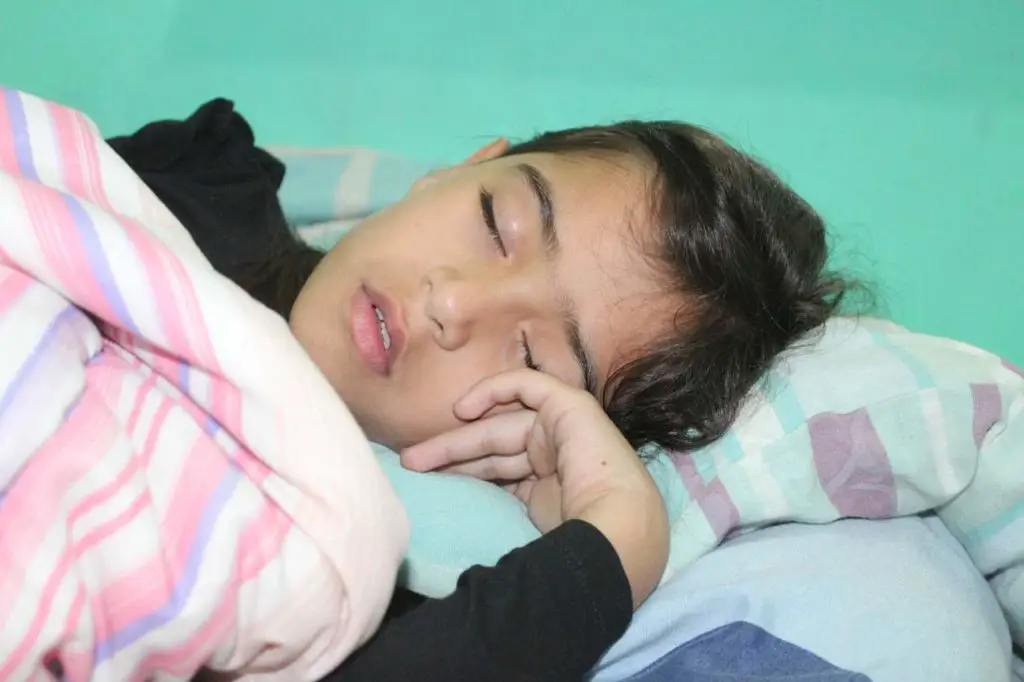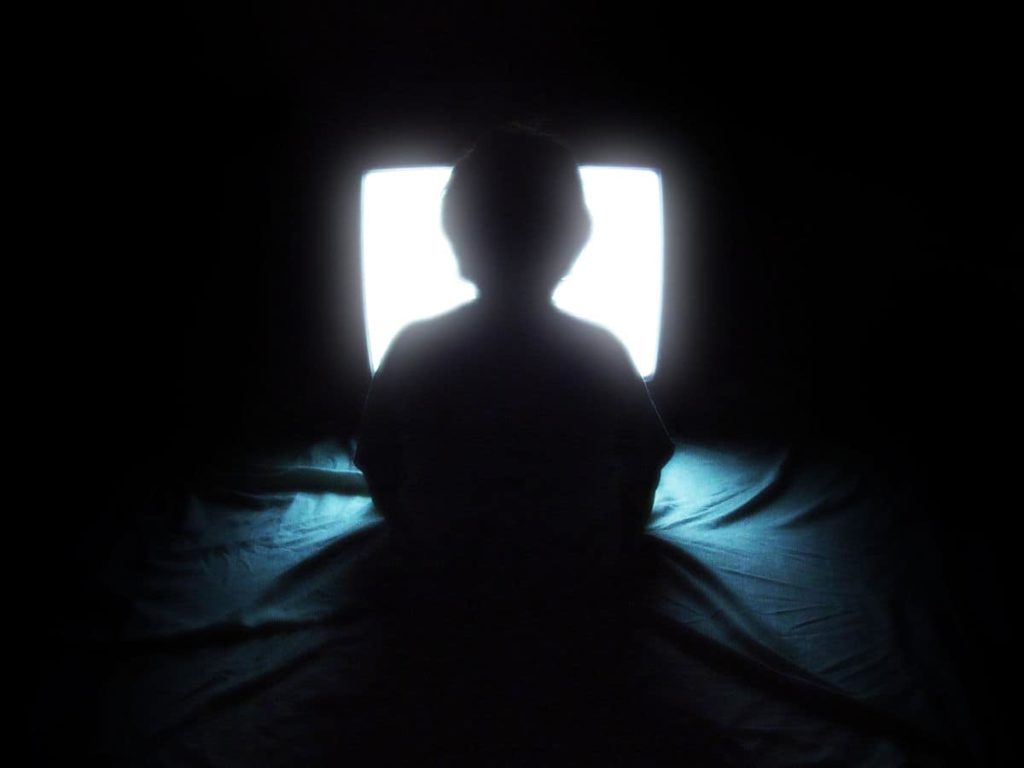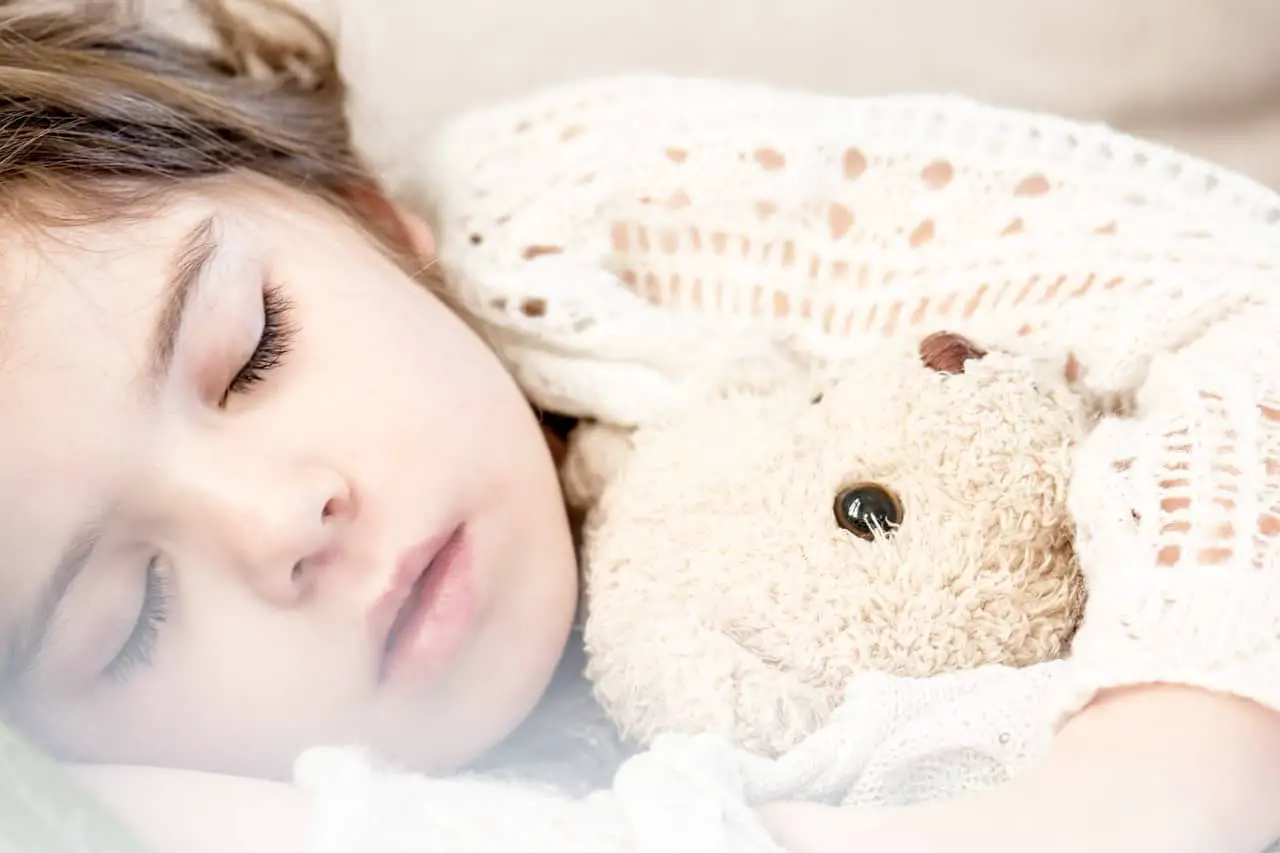If your child is not sleeping properly (9-15 hours depending on age), they could be suffering from insomnia.
Yes, kids can and do get insomnia just like adults.
It can be especially harmful for kids since sleep is crucial to their still-developing bodies and minds. So if you notice your child is showing typical symptoms of insomnia (listed below) take action immediately.
In many cases, you can solve the problem by adjusting their sleep environment or routine. Other times, the situation warrants a visit to a pediatrician who might refer you to a sleep specialist.
How Long Should Children Sleep
Children have to sleep a lot longer than us adults. Their bodies are still growing and sleep is essential for their physical and mental development.
Here's a list of typical sleep times for each age group. These are the expert-recommended guidelines, but it's normal to have a child who might need to sleep more or less by about an hour.
Infants (less than a year) – 12-15 hours
Toddlers (1-2 years) – 11-14 hours
Kindergarten (3-5 years) – 10-13 hours
Primary school kids (6-13 years) – 9-11 hours
Teenagers (14-17 years) – 8-10 hours
Young adults (18-25 years) – 7-9 hours
How to Spot Insomnia?

Apart from excessive sleepiness during the day and constantly complaining that they are tired, here are other symptoms you need to keep an eye out for.
- Irritability
- Decreased attention span
- Mood swings
- Behavioral problems at school
- Hyperactivity at night
- Anxiety about going to bed
- Depressive episodes
- Unusually aggressive behavior
- Worsening memory
Possible Causes of Insomnia
Behavioral factors

Poor sleeping habits and practices can lead to what experts call Behavioral Insomnia.
What happens is that the child has the opportunity to sleep but they behave in a way that makes it difficult to fall asleep or stay asleep.
For example, your child's bedtime is 9pm, but instead of going to bed, they continue playing video games and stay awake past their bedtime.
There are two types of behavioral insomnia.
Sleep-onset Association: In younger kids, this occurs when a child associates sleep with an item, an action or a series of events, and needs them to happen before they can sleep.
For example, some children need to be rocked before going to sleep or have to fall asleep in their parent's bed.
These sleep onset disorders often occur because of the influence of well-meaning caregivers. By not allowing kids the opportunity to learn to fall asleep independently, they allow these negative associations to stick.
For older kids, sleep onset disorders are often caused by video games, tv, laptops etc.
These devices are stimulating enough to keep the kids awake much longer than usual. The light from these devices also throws off their circadian rhythm, making it harder to fall asleep.
Limit-setting: Limit setting happens when a child insists on staying up past their bedtime. They ask for one more story, one more hug, a glass of water or to go to the bathroom.
They can also simply defy their parents and refuse to sleep.
This type of problem often occurs because parents don’t enforce strict bedtime rules. Kids are allowed to go to bed at different times everyday and this disrupts their circadian rhythm.
Stress
Yes, children do get stressed as well. They might not have bills to pay but there are many other things that can affect their mood and mental health.
They can be stressed by things happening at school (e.g. bullying) or an unpleasant home situation like a divorce or the death of a family member.
It is important to talk to kids and encourage them to open up about issues affecting them.
Medication, Sickness & Sleep Disorders
Some medications such as those used to treat ADHD have stimulants that can keep kids awake. If you cannot figure out why your child won't fall asleep, check the medicine cabinet.
If you suspect it is the medication they are taking, ask your doctor if you can get an alternative that won't affect their sleep.
They might also be coming down with a cold or some other illness and cannot sleep well.
It could also be a sleep disorder such as sleep apnea. You'll need to see a doctor if you suspect your child has a sleep disorder.
Sleeping Environment
Sometimes it could just be that they are not comfortable. Maybe the room is too cold, too warm or there's too much noise.
Also check the mattress. If it is too old and worn out, time to get a new single or twin mattress online. Read our reviews to find the best online mattresses.
Treating and Preventing Childhood Insomnia
Insomnia can be managed with a few lifestyle changes around the child's bedtime routine. Most of them require consistency to work effectively.
Treating Sleep Onset Insomnia
Caregivers need to replace and change habits that are interfering with a child's ability to sleep. An easy way to do this is by varying the bedtime routine.
For example, instead of rocking or cuddling every day, you could mix it up by cuddling on one day, reading a story the next day and so on.
For kids who can’t fall asleep without the parents, there are a few methods recommended to help them cope with this.
One of them involves the parent not being present when the child sleeps or wakes up at night. They will eventually learn to self-soothe themselves to sleep.
Alternatively, let your child cry for longer before you intervene. Increase the time you take to come to them and they'll eventually learn to fall asleep on their own.
Treating Limit Setting Insomnia
Here, it's all about enforcing strict bedtime rules.
No screens or gadgets after a certain time and no stimulating activities. Create a relaxing bedtime routine and stick to it.
You should also make sure their sleeping environment is sleep-friendly: a bit cool but not too cold, comfortable mattress, warm bedding, quiet room and no bright lights.
Affiliate Disclosure
Affiliate Disclosure: I may earn a small commission (at no cost to you) if you purchase a mattress after clicking a referral link or using a coupon code on this site. That said, all content and opinions on this site are my own and are NOT affected by these payments.
This site participates in the Amazon Services LLC Associates Program, an affiliate advertising program designed to provide a means for sites to earn advertising fees by advertising and linking to Amazon.com.
*Amazon and the Amazon logo are trademarks of Amazon.com, Inc, or its affiliates.

